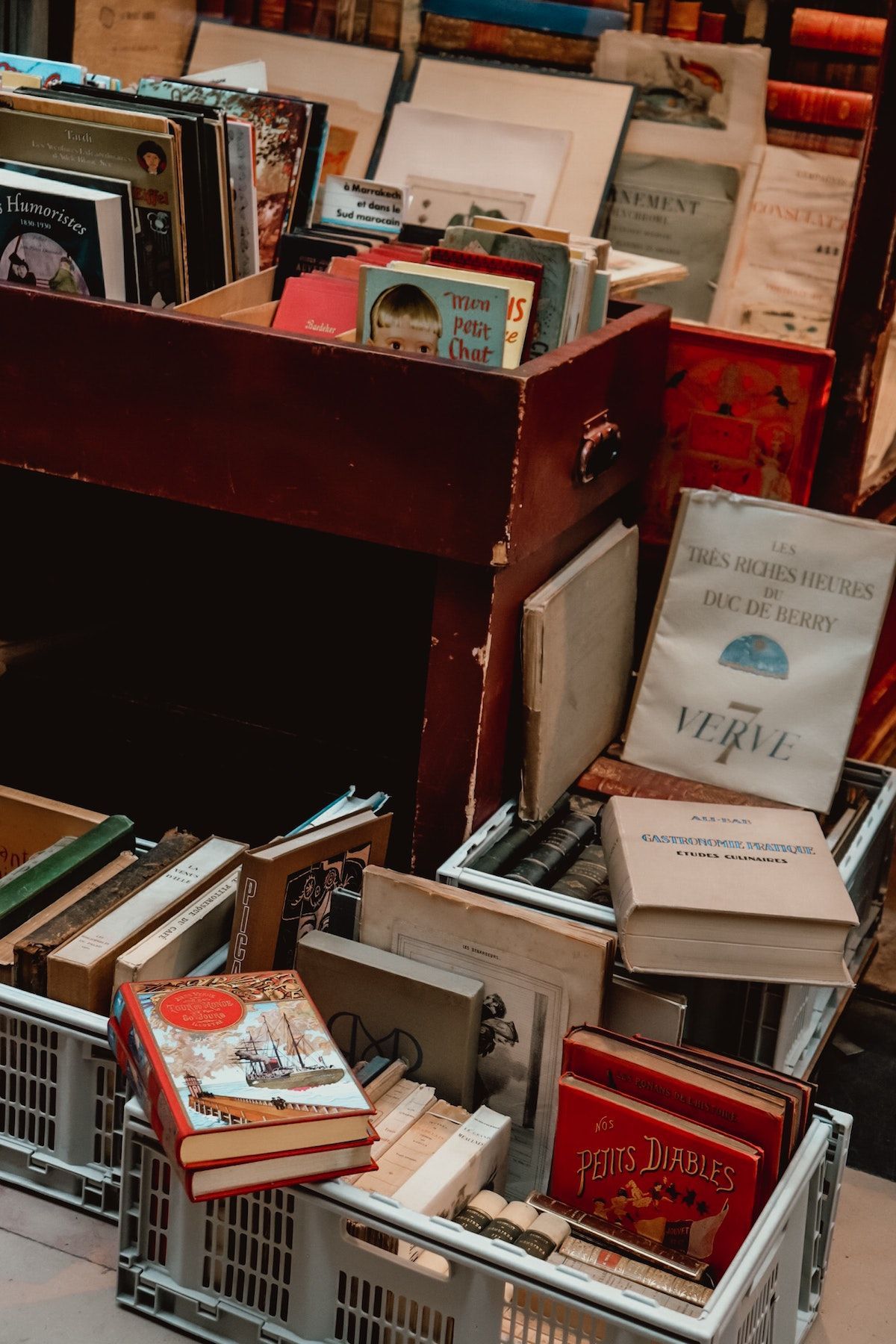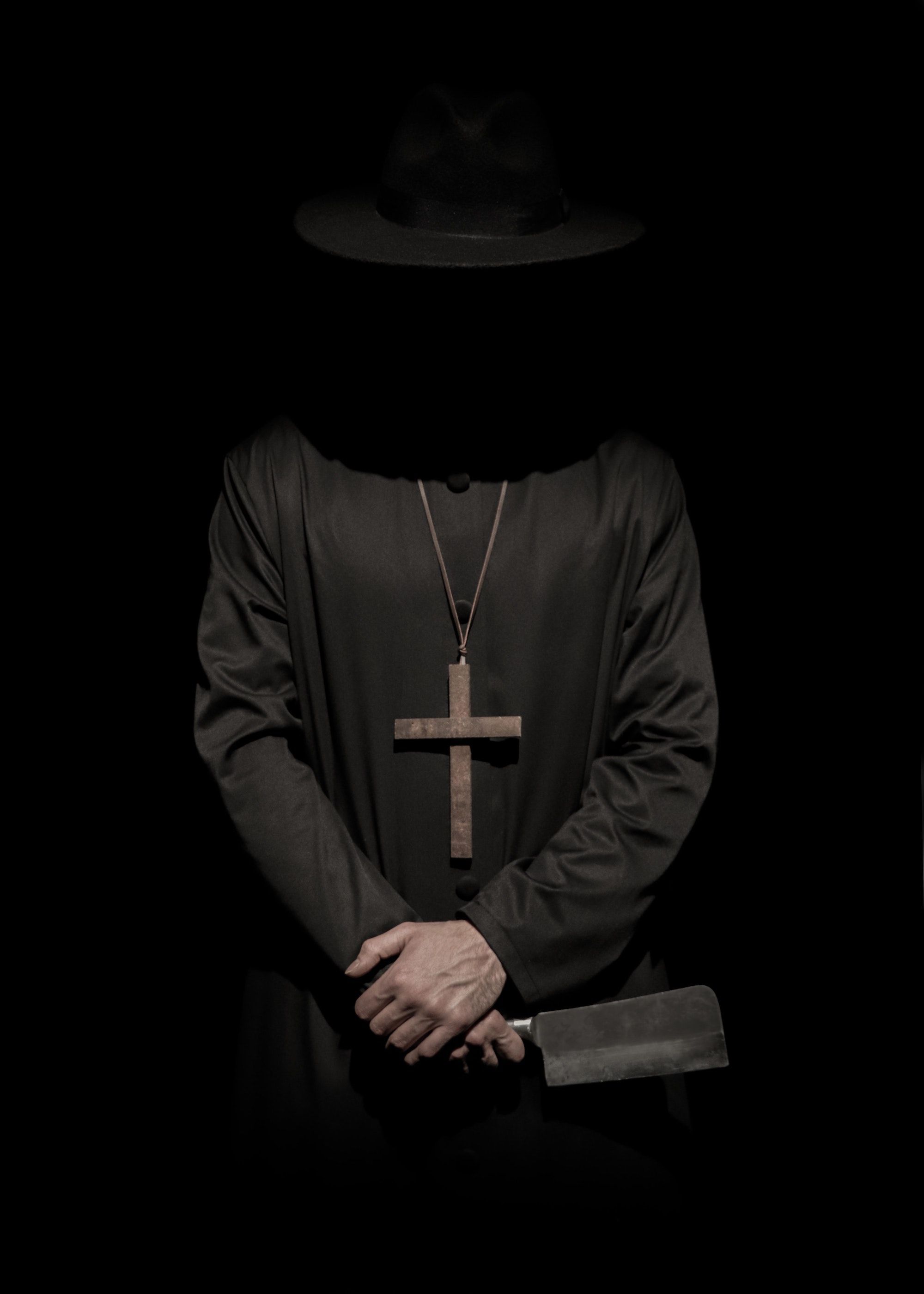
The Kingdom of Insecurity
It was the morning of 6th July, 2012. I was hungover but happy. I had no smartphone in those days so, happily unaware of the tyranny of Google Maps, I strolled aimlessly along Parisian boulevards, going where whim and fancy took me.
To my left, I saw a small street, very narrow, the watery sun framed between steeply rising buildings. Why not, I said, or possibly, being in France, voila, jeu m’appelle Pranay, and I took that left turn.
A few metres down the street, obscured by scaffolding, stood a bookshop. Just as a man who has spent his life working in restaurants can immediately tell whether a new one is going to be good, I knew, even without going in, that this was a good bookshop. So I went in, and sacre bleu, blow me if I wasn’t right. It was a good bookshop.
It’s a delicious question to ponder, what makes a good bookshop, so let us ponder it a little. I immediately think of three bookshops I have loved: two in Bangalore and one in Brighton. They were of very different sizes. One was very neatly ordered, the other two worshipped at the altar of Chaos. They were differently tidy. One was covered in centuries of dust, dust that most likely pre-dated the invention of the Gutenberg Press. One … No, it isn’t in the external details. What is it then?
Kipling’s novel Kim is many different love stories. The one I currently find most moving is the story of the love between the young boy Kim and the ancient Tibetan Lama whose disciple he becomes. The Lama is searching for a river that gives enlightenment to those who bathe in it. At the end of the novel he finds it, and the very last sentence of the novel is this:
He crossed his hands on his lap and smiled, as a man may who has won salvation for himself and his beloved.
This, I suddenly think, this is what good bookshops have in common. They are places of love and salvation, places where human beings have turned outwards, towards each other, towards, in Iris Murdoch’s words, "the extremely difficult realisation that something other than oneself is real."
In a good bookshop, books are treasured because they are other, they are the products of someone else, they are a way of touching another human soul. And in this touch, in this connection, lies salvation - or so we bibliophiles fervently hope.
In a good bookshop, the organising principle, the basic vibe, is what the Lama felt for Kim. A living love, a vibrant, dancing, amused, tender, awestruck, appalled encounter with the other, with everything that such an encounter causes.
Now, don’t misunderstand. This is compatible with a huge amount of what we would ordinarily call rudeness. I have been shouted at in 2 of my 5 favourite bookshops in the world for the ordinary sin of … umm, I’m not sure. Breathing? So this is not some soppy soft niceness. No, this is love, tender and fierce, a love, in the end, for other minds and other lives. That’s what good bookshops share and express and enable and encourage.
Anyway, I went in.

The philosophy section was on the first floor and remarkably well-stocked. And, if you’ll allow me a little ad hominem, it was actually a philosophy section, which is to say, it had Aristotle rather than Alain de Botton on its shelves.
A spine caught my eye, the letters white and red against a black background.
“Philosophy as a way of life”, it said. “Pierre Hadot.” I’d never heard of this Pierre Hadot. Some strange Frenchman, no doubt, who wrote odd impenetrable things that then disappeared up his own arse. Still, it was an interesting title, and I had nothing else to do, so I took the book off the shelf.
-
Why does anyone bother studying philosophy?
I studied philosophy because I passionately wanted answers to certain questions. How I should live? What was a good life? What did I need to do to be a good person? What was valuable? What was worth spending time on? What was the meaning of life?
My concept of studying philosophy was similar to my concept of learning German. It would go thus, I thought: First, I would spend time in the library, I would study hard, and then I would emerge, equipped with all the answers, ready now to live the good life / speak German perfectly.
That’s not a very good strategy, I learned over time, but be that as it may, the point here is that I wanted these answers because I wanted to live these answers.
Philosophy was not an academic, theoretical exercise for me. It was intensely practical.
I read about climate change and our duties to future generations. I read people who thought that we should give most of our income to the global poor and others who thought we should leave that up to governments. I listened to lectures about the most moral ways to organise societies. I argued with my fellow students about what our individual responsibility for collective harms was.
Bliss it was in that dawn to be alive! To be young, to be applying yourself to questions you care about, to thinkers you know are great, to feel your mind stretching, growing, to be learning more about things you know are important … everyone should experience this! The two years I spent in Bern doing my Masters were two of the happiest years of my life.
But the worm turned. By the time I pulled Hadot off the shelves in that Parisian bookshop, I was severely disillusioned with academic philosophy. It was talking about talking, it seemed to me, an insular game played between provincial minds. At best, it was harmless; at its worst, which it was all too often, it was cynical, careerist and intellectually lazy.
Through the creation of the modern university, we had turned the vocation of becoming a philosopher into a profession. And this, as Schopenhauer had already noticed in the 19th century, meant that philosophy had become the scene of
"the ancient battle between those who live for a cause and those who live off it."
The “philosophers” (sic) I met, the teachers I had … my word. With fewer than a handful of honourable exceptions, they were not pursuing wisdom at all. They had no love for it, no real commitment to truth or honesty. If they had been born in a different time and place, they would have been unctuous and oily priests, obsequiously ushering the Inquisitors to their next victim.

Here is Schopenhauer again:
Normally a teacher of philosophy would be the last person to whom it would occur that philosophy could in effect be dead earnest, just as the most irreligious Christian usually is the Pope. Hence it is among the rarest of cases that a genuine philosopher is at the same time a lecturer in philosophy
In my close to 20 years studying and teaching philosophy in universities, I met many young people who were genuine philosophers (until it was trained out of them). But out of hundreds of lecturers in philosophy, I can only remember three genuine philosophers.
As I turned the pages of Hadot’s book, first skimming but then slowing down, sitting down, finding a cafe and sitting on the street and reading in a fever daze, I learned it had not always been thus.
According to Hadot, who happened to be a distinguished historian of ancient philosophy, the inventors of western philosophy had distinguished between discourse about philosophy and philosophy itself. To do the former was not to do the latter. To talk about how to live, to write about virtue, to produce words and texts about justice and the good life - none of this counts as “doing” philosophy, and so none of it suffices to make someone a philosopher.
One consequence of this is that the people who are today paid to “teach” and “research” philosophy are not philosophers. Fine. I was down with that. But if producing and consuming words is not the mark of a philosopher, what is?
The ancients have a clear answer. The mark of a philosopher is not what she says. It is what she does. A philosopher does not come up and talk to you (or, more often, tell you) about how to live; rather, she lives in a particular way.
Many centuries later, Thoreau restated this idea in his earnest, American way:
There are nowadays professors of philosophy, but not philosophers. Yet it is admirable to profess because it was once admirable to live. To be a philosopher is not merely to have subtle thoughts, nor even to found a school, but so to love wisdom as to live according to its dictates, a life of simplicity, independence, magnanimity, and trust. It is to solve some of the problems of life, not only theoretically, but practically.
I put the book down and lit another cigarette. An impossibly French woman crossed the street.

What I read in Hadot haunted me for years. In the idea of philosophy as a way of life lay a possible redemption, I felt, seeds of renewal and revitalisation. But it was always tantalisingly out of reach, this almost-salvation.
You know how sometimes you forget a name but you know it’s there, and you can feel it there, on the outer edges of your mind, just out of reach but almost within grasp? That’s how this felt. I wrote papers and gave talks about philosophy as a way of life, continually playing with the ideas, trying to figure out how to make them real, and continually not quite succeeding.
Then, one winter, I gave a course on philosophy as a way of life. Now, given that the entire idea of philosophy as a way of life is that philosophy is something that is lived rather than talked about, it was clear to me that I could not give a conventional seminar. So I didn’t. I’m still not entirely sure what it was, but it was definitely not normal.
The students and I certainly did read some texts together but this was in the service of life. Because what we did, what ended up being the core of the course, was we let ourselves be inspired by the texts and the discussions and tried to live in particular ways.
Some people gave up their smartphones for a month, some people followed the Stoic Handbook, some went regularly to the woods like Thoreau, some started meditating, some did spiritual exercises … it was a regular free-for-all and it makes me grin to remember it.
The course made me understand why something about philosophy as a way of life lay out of reach, why I couldn’t quite make it real. The clue was in the wide variety of things that my students came up with in trying to actually live philosophically - the point was exactly that these things were so various.
Let me put it like this. The ancient Greeks had this immense confidence. They knew what the world was like, what reality was like, what wisdom consisted of and how to achieve it. Each philosophical school had its answers to those questions and its adherents were convinced that those answers were right.
They were all so bloody certain.
My students, at least the best of them, were not certain at all and neither was I.
What is a life of wisdom? I don’t know.
Does God exist? Umm, maybe?
Should I love my neighbour? Christ, don’t ask me.
This uncertainty was the obstacle to translating philosophy as a way of life into something that we could use in our own lives. Because in the ancient conception of philosophy as a way of life, to do philosophy was to use a tool. To philosophise was to carry out certain activities and to be a philosopher was to live in a certain way - and the aim of those activities and that way of being was transformation. And the transformation had an aim - the aim was wisdom.
This is fine when you know what wisdom involves. But if, like my students and me, you had no conviction about what wisdom involved, when you had no certainty about the good life, when in fact the defining feature of your condition was doubt, what good was the idea of philosophy as a way of life? How could you even get started?

As it so often does, the way forward revealed itself once I had fully accepted where I was.
We have to accept that we are not in the place the ancients were. Our world is shattered in ways theirs wasn’t.
We have to accept that we do not know what wisdom involves, we do not know what the good life is, we do not know what really matters and what it all means.
But we have to be clear-eyed in our acceptance of all that.
Accepting we do not know what wisdom involves does not mean accepting that there is no such thing as wisdom.
Accepting we do not know what the good life is does not mean accepting that there is no such thing as a life that is good.
We have many good reasons to doubt, to be uncertain about value and wisdom and god and meaning. But being uncertain about the existence of objective value is not grounds for being certain that it does not exist.
What I’m saying is, we should let our uncertainty remain uncertainty, instead of letting it degrade into either conviction or nihilism.
We do not know - so let us live as if we do not know.
We long to know - so let us live as if we long to know.
Living this, living the tension between the longing and the disappointment, living the uncertainty, not accepting consolation for it, not giving in to the siren temptations of conviction and nihilism, living with a desperate longing for answers while refusing to let your longing override your judgment, submitting to the demands of Reason but only within its legitimate limits … that’s a way of honestly translating the ancient idea of philosophy as a way of life into something that speaks to us today.
In one of those curious occurrences that happen on the Isle of Serendip, just today I came across a book by Martin Buber called Daniel: Dialogues on Realization. It’s a young book written by a young man, a book of fire and light, a book by Martin Buber before he became Martin Buber. And in it he also talks about this tension, this uncertainty:
This is the kingdom of God, Reinold: the kingdom of danger and of risk, of eternal beginning and of eternal becoming, of opened spirit and of deep realization, the kingdom of holy insecurity.
That’s it. That’s exactly it. The kingdom of holy insecurity - but with one modification. Martin Buber called it holy: we must deny ourselves even that faith. .
It’s hard to live in that kingdom and even harder when you strip away its promise of holiness. Immensely hard.
But then no one said that being a philosopher was going to be easy.

